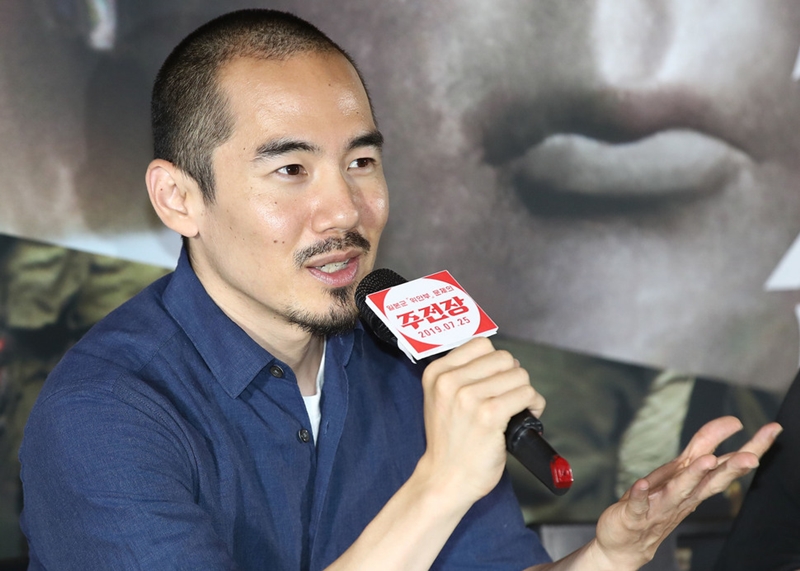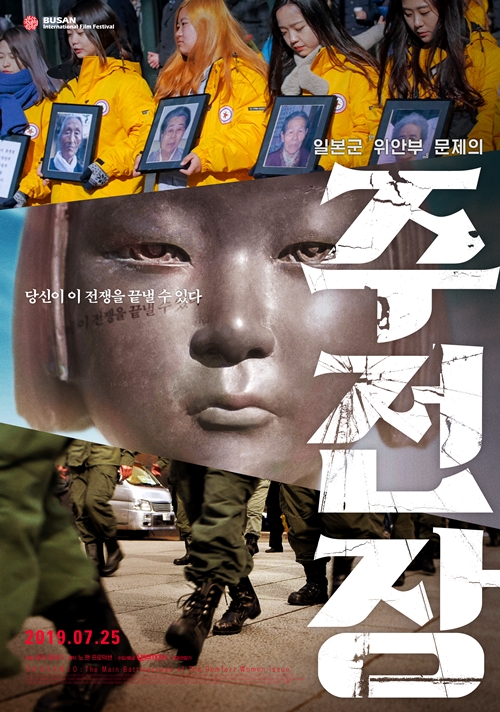
Miki Dezaki, director of the feature-length documentary "Shusenjo: The Main Battleground of the Comfort Women Issue," on July 15 speaks to a news conference at the Seoul COEX. (Yonhap News)
By Kim Eun-young and Kim Hwaya
Seoul | July 15, 2019
"The dispute occurs due to information gaps between Korea and Japan. When people in both countries get to know things they didn't know before, hatred will dwindle away and they can hold productive discussions about the comfort women issue."
Amid deteriorating Korean-Japanese relations in the wake of Japan's export restrictions on Korea, Miki Dezaki, the Japanese American director of the feature-length documentary "Shusenjo: The Main Battleground of the Comfort Women Issue," on July 15 explained his reason for making the film in a news conference at the Seoul COEX.
His movie covers information from and interviews with 30 scholars and experts from Korea, Japan and the U.S., national documents and journals. The director tried to find solutions to the issue within a running time of 121 minutes.
"The discussion between Korea and Japan should start from unification of terms such as 'sex slaves' and 'forced laborers,'" Dezaki said. "The terms should be legally unified in a way both countries can agree with."
"The comfort women issue is not only a diplomatic issue between the two countries but also an international women's rights issue," he added. "I hope people think about the issue through this movie."
On Koreans forced to perform labor for Japanese companies, he said, "This is basically a human rights issue as well," adding, "I'm sorry that the Abe administration (of Japan) reacted to the issue by tightening export rules."
The movie is scheduled for release on July 25.

The documentary "Shusenjo: The Main Battleground of the Comfort Women Issue" will be released on July 25. (Cinemadal)
eykim86@korea.kr